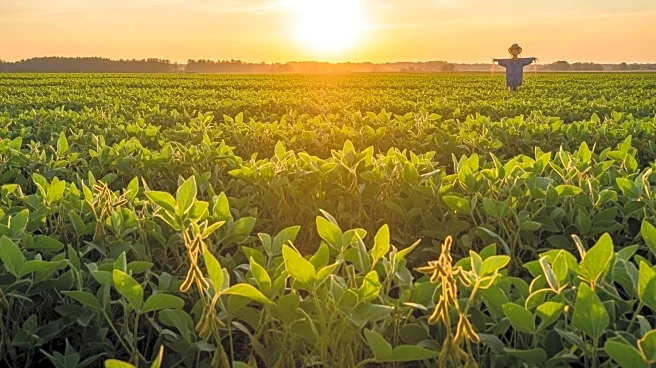What is the story about?
What's Happening?
Soybean farmers in southern Illinois, like Scott Gaffner, are facing significant challenges due to China's ongoing boycott of American soybeans amid the trade war. China, the largest consumer of soybeans, has not made any purchases from U.S. farmers this harvest season, causing anxiety and financial strain. Farmers who supported President Trump are caught in the crossfire, with fixed costs rising and market opportunities dwindling. The Trump administration is considering a financial aid package to support affected farmers, but concerns remain about long-term trade relationships.
Why It's Important?
The boycott by China is impacting not only individual farmers but also the broader rural economy that relies on agricultural sales. The potential financial aid package could provide temporary relief, but farmers like Gaffner emphasize the need for stable trade relationships over one-time aid. The situation underscores the vulnerability of U.S. agriculture to international trade disputes and the importance of resolving such conflicts to ensure economic stability for farming communities.
What's Next?
The Trump administration's proposed financial aid package could offer immediate support, but the focus remains on restoring trade relations with China. Farmers are concerned about losing long-term market access if China establishes new trade routes. The resolution of the trade war and the restoration of soybean exports to China are critical for the future of U.S. agriculture.
Beyond the Headlines
The trade war highlights the interconnectedness of global economies and the impact of political decisions on local industries. The situation may prompt discussions on diversifying export markets and strengthening domestic agricultural policies to reduce dependency on single markets.















